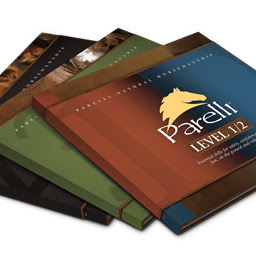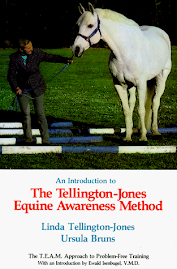Here is a short list of good advice I have received over the years. They are in no particular order of importance or chronology. They have helped keep me on the right path and I haven’t found any reason to throw them out yet.
1. Assume everything you have been told is wrong until you are satisfied that it isn’t.
This was advice given to me by my PhD supervisor when discussing scientific research. But it’s worked equally well for me in my progression as a horseman.
2. Never be content with what you know.
Again, this came from my PhD supervisor and has been an enormous help to me in becoming a better horseman.
3. Whatever a horse does, it’s never personal.
Horses have no agenda except to seek comfort and safety. No matter how badly a horse behaves or how well he behaves it is not about the human.
4. There is no place for punishment in training.
Horses don’t understand punishment. It has no meaning to them. To a horse being punished is only about people taking out their rage for no reason. Punishment is never a good learning experience to a horse.
5. When you tame something you are responsible for it.
This notion came to me by the book “The Little Prince.” The fox explained to the Little Prince that bringing something into your life made you responsible for its well-being. You don’t own it and you don’t control it, you are just responsible for it.
6. A horse doesn’t need you to be his boss.
There is a big difference between being a boss and being a teacher. Horses don’t nee to made to do things. They need to be guided in how and why to do things.
7. There is no such thing as winning or losing when it comes to horses.
Some people think you should never let a horse win. This is up with there with the idea of not letting a horse put one over on you. Horses don’t think in terms of winning or losing. They think in terms of surviving or dying. If it’s about making sure you win, then it also becomes about making sure the horse loses. A horse should never feel like he lost.
8. When riding down a hill lean forward, not backwards.
As years of trekking have taught me, leaning back when going down hills is a really quick way of giving your horse a sore back.
9. Don’t buy an unbroken horse in the hope to avoid inheriting a horse with problems.
If you don’t know how to fix a problem in a horse, you probably don’t know how to avoid putting a problem in a horse.
10. You don’t need a bit to control a horse.
Control is something a horse gives you, not something you impose on a horse. A bit is only one method to convey to a horse’s brain your intent. But it is not the only or most important method
1. Assume everything you have been told is wrong until you are satisfied that it isn’t.
This was advice given to me by my PhD supervisor when discussing scientific research. But it’s worked equally well for me in my progression as a horseman.
2. Never be content with what you know.
Again, this came from my PhD supervisor and has been an enormous help to me in becoming a better horseman.
3. Whatever a horse does, it’s never personal.
Horses have no agenda except to seek comfort and safety. No matter how badly a horse behaves or how well he behaves it is not about the human.
4. There is no place for punishment in training.
Horses don’t understand punishment. It has no meaning to them. To a horse being punished is only about people taking out their rage for no reason. Punishment is never a good learning experience to a horse.
5. When you tame something you are responsible for it.
This notion came to me by the book “The Little Prince.” The fox explained to the Little Prince that bringing something into your life made you responsible for its well-being. You don’t own it and you don’t control it, you are just responsible for it.
6. A horse doesn’t need you to be his boss.
There is a big difference between being a boss and being a teacher. Horses don’t nee to made to do things. They need to be guided in how and why to do things.
7. There is no such thing as winning or losing when it comes to horses.
Some people think you should never let a horse win. This is up with there with the idea of not letting a horse put one over on you. Horses don’t think in terms of winning or losing. They think in terms of surviving or dying. If it’s about making sure you win, then it also becomes about making sure the horse loses. A horse should never feel like he lost.
8. When riding down a hill lean forward, not backwards.
As years of trekking have taught me, leaning back when going down hills is a really quick way of giving your horse a sore back.
9. Don’t buy an unbroken horse in the hope to avoid inheriting a horse with problems.
If you don’t know how to fix a problem in a horse, you probably don’t know how to avoid putting a problem in a horse.
10. You don’t need a bit to control a horse.
Control is something a horse gives you, not something you impose on a horse. A bit is only one method to convey to a horse’s brain your intent. But it is not the only or most important method






























































This is awesome! #1 is my favorite :)
ReplyDelete